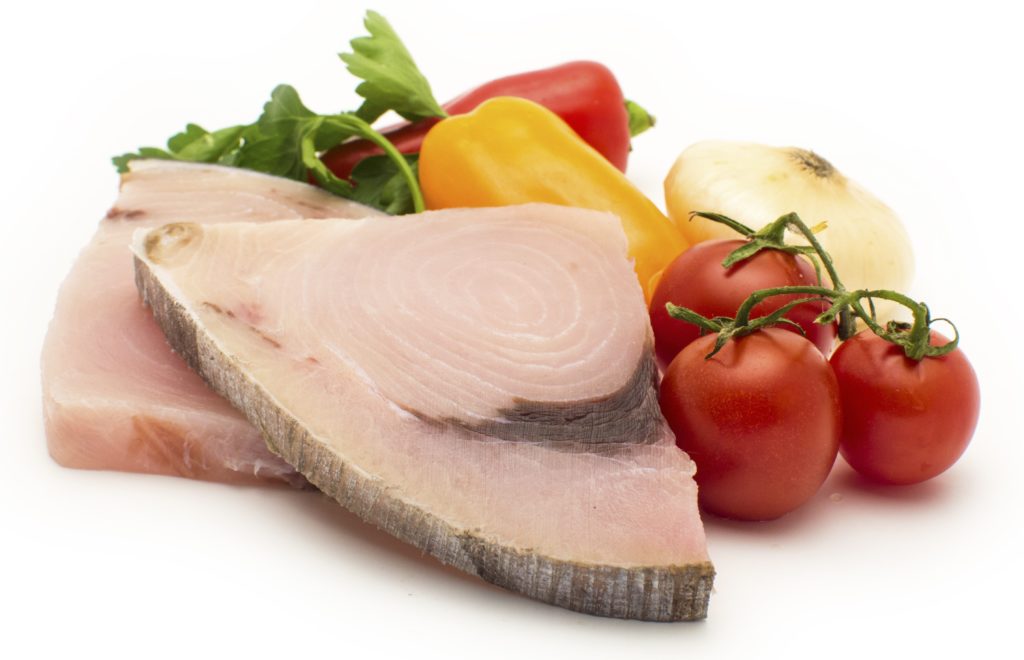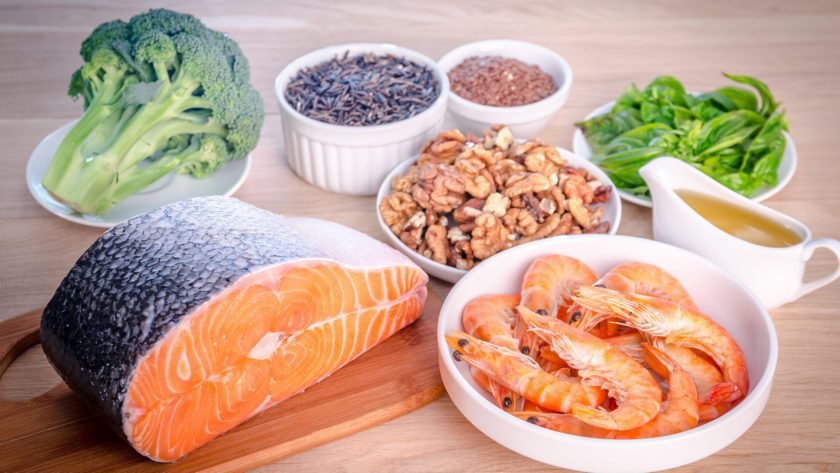Omega-3 fatty acids are polyunsaturated fats and consist of three types: EPA, DHA and ALA.
Eicosapentaenoic acid (EPA) and docosahexaenoic acid (DHA) are primarily found in certain kinds of fish. Another type of omega-3 fatty acid, alpha-linolenic acid (ALA), is found in plants.
Certain types of fish are rich in EPA and DHA. These essential polyunsaturated fats reduce C-reactive protein (CRP) and interleukin-6, two inflammatory proteins in your body. A six-month study demonstrated that consuming 960 mg/day of EPA and 600 mg/day of DHA lowered CRP.¹

Pick the Right Fish
To reduce your exposure to mercury from eating fish, be sure to choose the right fish. Avoid larger, longer-living fish, such as shark and swordfish, as they tend to accumulate more mercury and other contaminants, such as PCBs and dioxins, than the smaller fish like sardines, sole, and trout.
Per Consumer Reports, a 6-oz. serving of:
- Salmon contains 4 mcg of mercury (fresh/salt water)
- Canned albacore (“white”) tuna contains 60 mcg (salt water fish)
- Swordfish contains 170 mcg (salt water fish)
WARNING: Eat no more than three 6-oz. servings of high-mercury fish per month.
Fish High in Omega-3s
Oily fish high in omega-3 fatty acids include:
- Artic char – Recipe: Grilled Arctic Char with Cilantro Island Sauce (fresh/salt water)
- Anchovies (salt water fish)
- Bluefish (salt water fish)
- Eel (fresh/salt water)
- Herring (salt water fish)
- Lake trout
- Mackerel (salt water fish)
- Salmon, wild and Alaskan, about 2.1 gm of omega-3’s per 4-oz. serving (fresh/salt water)
- Sardines (fresh/salt water)
How much: At least 3 to 4 ounces of fish, twice a week
NOTE: Although fish may lower inflammatory compounds, salt-water fish are rich in choline, lecithin, and carnitine, and are therefore, a potential source of TMAO (trimethylamine-N-oxide)* — a key blood biomarker linked closely to cardiovascular disease.
![]() Karen’s Fit Tip: If you don’t eat fish, you can actually drink it in the form of orange juice! Tropicana® Orange Juice Pure Premium Healthy Heart Orange Juice is fortified with actual fish (tilapia, sardine and anchovy). Also, grass-fed beef is often higher in omega-3 fatty acids than conventional beef due to their diet of grass and foraged foods versus grains, such as corn.
Karen’s Fit Tip: If you don’t eat fish, you can actually drink it in the form of orange juice! Tropicana® Orange Juice Pure Premium Healthy Heart Orange Juice is fortified with actual fish (tilapia, sardine and anchovy). Also, grass-fed beef is often higher in omega-3 fatty acids than conventional beef due to their diet of grass and foraged foods versus grains, such as corn.
Source:
¹Fish oil supplementation lowers C-reactive protein levels independent of triglyceride reduction in patients with end-stage renal disease. Nutrition Clinical Practice. 2009.

